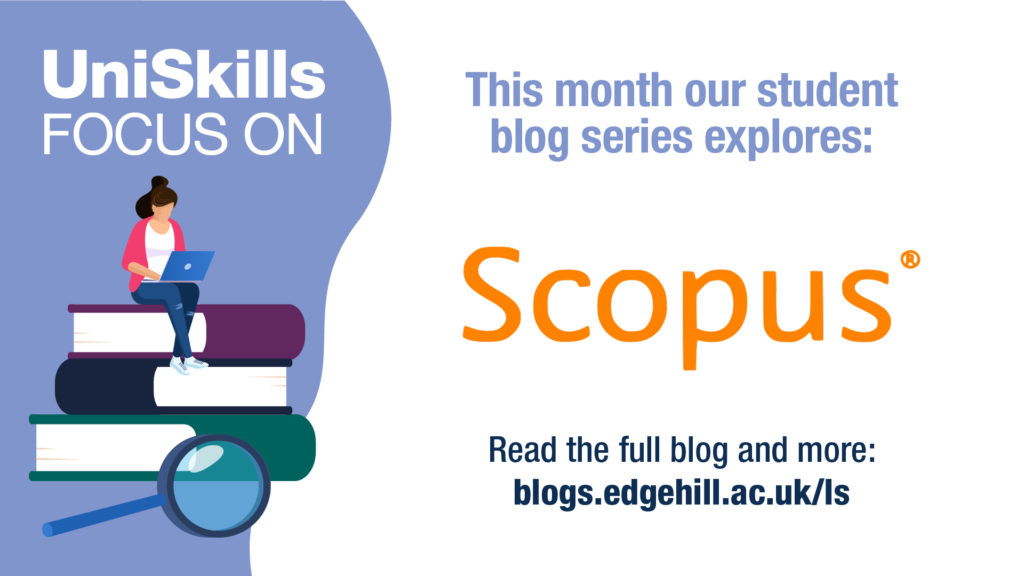Welcome to the February instalment of the UniSkills Focus On… blog series where this month we will be looking at Scopus. Scopus is a huge database and covers every academic subject, meaning that it has something for everyone regardless of which course you’re studying.

What does Scopus offer?
Scopus is an abstract and citation database, meaning that it contains references (or citations) to journal articles and summaries (or abstracts) of those articles. To access an article, click on the link called View at Publisher, as Scopus doesn’t have any PDF links.
Scopus is one of the largest databases in the world and contains:
- Over 84 million records
- Nearly 35,000 individual journal titles
- Over 249,000 books
- Content from over 11,000 publishers
Scopus also has a really broad subject coverage, including:
- Life sciences
- Health sciences
- Physical sciences
- Social sciences
- Arts and humanities
Altogether, Scopus has content from an impressive 240 different academic disciplines!
The benefits of using Scopus
All of the content in Scopus has been reviewed by a Content Selection and Advisory Board, which is composed of international experts. This means all of the content in Scopus conforms to the highest academic standards and, as a student, you can be sure that all results are of the highest quality. Also, the breadth and the depth of the subject coverage means that whatever the topic you are researching you can be certain that Scopus has something for you! It will especially appeal to those of you who are looking for literature for your dissertation.
How to access Scopus?
The easiest way to access Scopus is to search Discover More, click on the link to the home page. You can then browse or search for useful materials. You can also access Scopus from the Subject Resources webpages for your subject.
Further Help and Support
If you need any further help or support finding, accessing or getting the most out of your resources head over the UniSkills web pages. From here you can access lots more information, toolkits and video tutorials, book on a UniSkills Workshop and even book a 1-2-1 appointment.
Join us next month, when the UniSkills Focus On… blog will be looking at the benefits of Newspapers!
